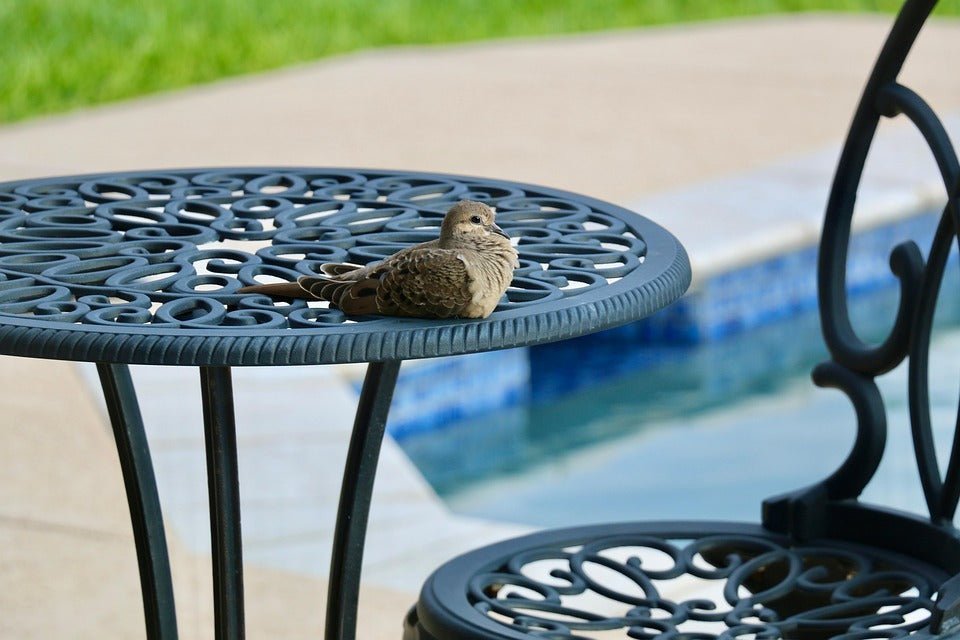
Avian Influenza (AI): Guidance for Wild Bird Feeders
Share
Source: British Veterinary Zoological Society (BVZS)
Avian Influenza, commonly known as bird flu, is a disease that affects birds, particularly during the winter migratory season. While it poses a serious risk to birds, the risk to humans is extremely low. If you enjoy feeding wild birds, here’s how you can help protect them and prevent the spread of this disease.
What Is Avian Influenza?
Avian Influenza is a virus that naturally circulates in wild birds, especially waterfowl such as ducks, swans, and geese. Many wild birds carry the virus without showing clinical signs, but it can spread to other birds through droppings, feathers, or contaminated surfaces like bird feeders.

How Does Bird Flu Spread?
Bird flu spreads in several ways:
- Through direct contact between birds, including at feeders or water sources.
- Contaminated droppings, feathers, or secretions from infected birds.
- Surfaces such as bird feeders, tables, and water trays that are not cleaned regularly.
The virus is not airborne but can spread through droplets or contaminated environments.
How to Feed Wild Birds Safely
Feeding wild birds is still important, especially during winter, but it’s essential to take precautions:
- Clean Feeders and Tables Weekly: Use warm, soapy water and rinse thoroughly. Disinfect with a suitable bird-safe product if necessary.
- Rotate Feeding Spots: Move feeders regularly to prevent the build-up of droppings in one area.
- Keep Water Sources Fresh: Change water daily and clean bowls frequently.
- Avoid Overcrowding: Use multiple feeders to reduce close contact between birds.
- Provide Fresh, High-Quality Food: Discard any old or mouldy food that could harm birds or attract pests.
- Signs of Bird Flu in Wild Birds

Be alert to signs of illness in the birds visiting your garden:
- Lethargy, unresponsiveness, or unusual behaviour.
- Breathing difficulties, coughing, or sneezing.
- Swollen heads or discoloured legs and wattles.
- Sudden deaths of birds in your area.
If you notice these signs, do not attempt to handle sick or dead birds.
What to Do If You Find Dead Birds
If you find dead birds in your garden or local area:
- Do Not Touch Them: Avoid handling the birds or their droppings.
- Report the Findings: Contact the Defra helpline at 03459 33 55 77. Provide the exact location using a postcode or map coordinates.
- Follow Instructions: Defra may arrange for the birds to be collected. If collection is not arranged within 48 hours, leave the birds undisturbed or dispose of them as advised.
More information is available on the UK government’s Avian Influenza Guidance Page.
Is It Safe to Feed Wild Birds?
Yes, it is safe to feed wild birds as long as proper hygiene is maintained. The Food Standards Agency states that bird flu poses a very low risk to humans. Always wash your hands thoroughly after handling feeders or cleaning feeding areas.
For our full range of cleaning products click here.

Why Feeding Birds Responsibly Matters
Feeding wild birds during winter provides essential support, especially when natural food sources are scarce. By taking simple precautions, you can help prevent the spread of Avian Influenza while continuing to enjoy the beauty of birds in your garden.
For the latest updates on Avian Influenza, visit:
Together, we can protect wild birds and ensure safe feeding practices.

Written by Haith's
